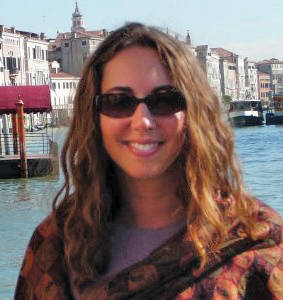It’s 37 degrees as I emerge from the dark house into the blue of dawn. When I step off the deck, the cold ground takes in my full weight and the long winter’s precipitation pushes out of the ground in the form of squishing mud. I feel my toes tighten, cringing against the perceived grossness and fight to press them further into the spongy matter below. This is how I know to find my roots, to recalibrate, to assess. Once a week I make a point to experience life in this way and take note of life at 4 a.m.
As I press into my feet and rise onto my toes, I feel the potential — potential to lose my balance and the potential for change. I find myself thinking on the need for balance and how losing it always helps me to understand it. I’m also aware of the need for change and a general reluctance to embrace it. But when I’m off balance, I can better feel the need for change.
I work for Hospice of Homer. It’s difficult to argue against our mission: To serve the Southern Kenai Peninsula by providing comfort, dignity and choice through care, support, and education to the frail and isolated and to those facing end-of-life issues. We also lend durable medical equipment to the community, and support the bereaved. We are supported by generous individuals and businesses with differing viewpoints and political affiliations.
At the hospice office we see the value in conversation, and we make an effort with everyone. Like the man comes in who needs help talking to a dying friend. We listen, make suggestions, and send him out with a book to improve his confidence in that difficult situation. The most important thing is that he and his friend have just a little more quality time together.
Or the man with a terminal diagnosis who stops in to get his head around this new phase of life and to learn how to talk to people who ask him questions when they learn of his condition. We sit with him, listen and help him to craft a few phrases to diffuse those situations. Or maybe someone comes in to get a walker for a partner who’s struggling to get around the house. We listen to the stories about late night falls and offer options for assistance.
We find the common ground and go from there. We are all born. We will all die. How can we help to make a difficult time more peaceful?
Once, a woman came by to return some borrowed medical equipment. While she was there an artist came in to donate a beautiful piece in the hopes hospice could generate some revenue. The woman’s reaction seemed obscured; I couldn’t help but follow her out in the hopes of filling in the blanks left by her mask. She recognized the artist for his political affiliation and was surprised to see such a generous donation. She was embarrassed by her own prejudice and I was impressed that she could admit she was wrong. Before we parted, we discussed the need for more opportunity to put aside our preconceived notions.
Find the points of connection with your neighbor. Look beyond our “Hamlet by the Sea” community and squint until you find what is similar between us and “them.” This is a starting point. We are far more the same than we can ever be different.
Rise up into a conversation, let yourself get a little off balance, and see if you can find room in yourself for a little change.
Holly Dramis is the director of development and finance at Hospice of Homer.

